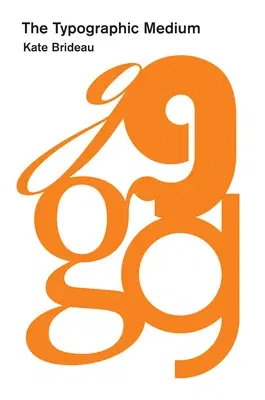An innovative examination of typography as a medium of communication
rather than part of print or digital media.
Typography is everywhere and yet widely unnoticed. When we read type, we
fail to see type. In this book, Kate Brideau considers typography not as
part of print media or digital media but as a medium of communication
itself, able to transcend the life and death of particular technologies.
Examining the contradiction between typographic form (often overlooked)
and function (often overpowering), Brideau argues that typography is
made up not of letters but of shapes, and that shape is existentially
and technologically central to the typographic medium.
After considering what constitutes typographic form, Brideau turns to
typographic function and how it relates to form. Examining typography's
role in both the neurological and psychological aspects of reading, she
argues that typography's functions exceed reading; typographic forms
communicate, but that communication is not limited to the content they
carry. To understand to what extent the design and operations of the
typographic medium affect the way we perceive information, Brideau
warns, we must understand the medium's own operational logic, embodied
in the full diversity of typographic forms.
Brideau discusses a range of topics--from intellectual property
protection for typefaces to Renaissance and Enlightenment ideal
letterforms--and draws on a wide variety of theoretical work, including
phenomenological ideas about comprehension, German media archaeology,
and the media and communication theories of Vilém Flusser and others.
Hand-drawn illustrations of typographic forms accompany the text.

